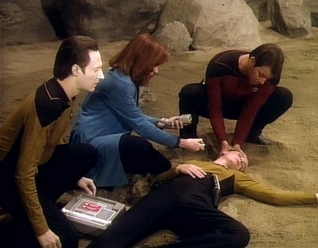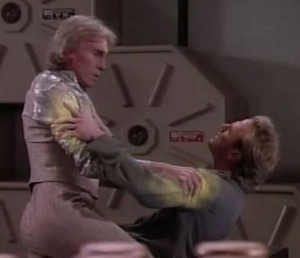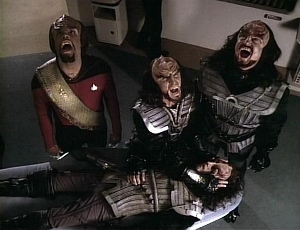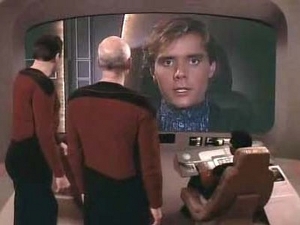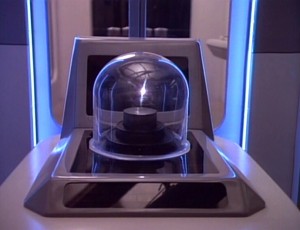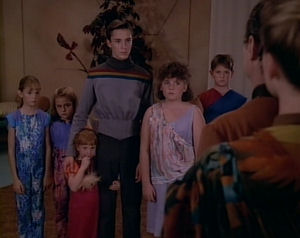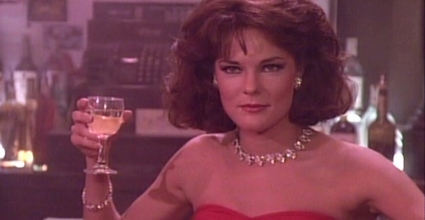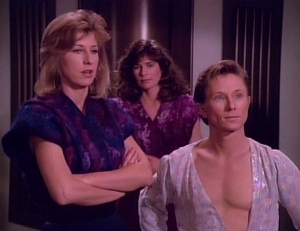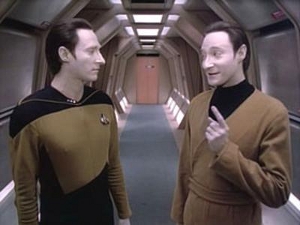I’m examining the impact Star Trek: The Next Generation had on my formation. The introduction to this series can be seen here.
Disturbing activity near the Romulan Neutral Zone suggests that long-secluded hostile forces may be returning to engage the Federation. Meanwhile, Data discovers several inhabitants of Earth’s 21st century in cryogenic deep freeze, and Dr. Crusher revives them.
There’s now been nearly a full season of fan complaints that the 24th century is just too damn peaceful, and the Ferengi were a miserable failure at building a worthy adversary. So, before wrapping the season, the writers decided to mine a tangential race from the original series, the Romulans, and tease us with their ominous return as the next major enemy of the Federation.
There is a portion of the grand experiment of Next Generation that ends here. It was Roddenberry’s vision that this would be a more peaceful place to be than the universe of its predecessor in a number of ways. The Federation’s alliance with the Klingon Empire and the presence of Worf on the flagship was a part of that. This theme was part of what grabbed my attention from the beginning. But here, peace is finally decided to be narratively detrimental. Having a military target is considered necessary to the health of the show. This was the opinion of the majority of the fans, and the writers adopt it here, with this narrative decision. I didn’t agree then, and I don’t agree now. The best episodes of this season did not require a major enemy. The most beloved future episodes that I remember (“The Inner Light”, “The Measure of a Man”) had no requirement for military targets. That’s not to say that the show is made unwatchable by this event. At the time, the foreboding of this episode certainly gave me excited chills. But I was also sad. Even then I realized, something of a grand dream died. This assumption is still made today among writers… that peace, or basic psychological health, or all manner of desired characteristics are narratively “boringâ€. There’s a pervasive and anemic definition of useful dramatic conflict that profoundly diminishes the stories we could tell. To me, this speaks to our own stunted imagination rather than to the dramatic reality of pursuing health and right relationship.
For what this episode is – a somewhat desperate attempt to hang on to viewers over season break – it’s crafty and compelling. The story about the Romulans is actually secondary, as far as time spent telling it, and the primary tale is a touching one of three Earthlings adjusting to being thrown hundreds of years into the future.2 Picard’s interactions with one of them – a man obsessed with gaining wealth through the stock market – further elaborates on the values of the future: they have eliminated hunger, and no longer focus on the accumulation of wealth. When the man is told that material needs no longer exist, his disappointed reply is “Then what’s the challenge?â€3
It’s just sad that so many seem to feel the same way about peacefulness.
1) From http://www.dailydrew.com/2010/11/neutral-zone.html
2) Tangential to the post here, but worth noting that the writers resort here to the sexism-is-funny trope: Dr. Crusher has to endure an affectionate pat on the butt from one of the adjusting passengers. He gets a free pass because hey, he just doesn’t know better, right? (Which feels very similar to “boys will be boys†to me.) Grrr.
3) Yes, the social commentary is a bit heavy-handed. But questioning something my family considered unquestionable – the importance of the accumulation of wealth – made me feel at home in this universe.
